This post discusses the top 10 bad food combinations you should never mix.
We all know how it feels to be hunched over in pain after eating a meal or getting takeout that didn’t quite agree with us.
Usually, we blame a certain food or treat, but sometimes it’s the way things are paired that causes the problem.
Some foods just don’t go well together, and pairing them can lead to issues such as nausea, bloating, or worse.
If you want to keep enjoying your favorite meals, it helps to know which pairings to avoid.
In this post, we’ll cover the top 10 bad food combinations you should never mix so you can feel your best after each and every meal.
Are There Foods You Shouldn’t Mix?
Yes! Think of your stomach like a mini test tube, and the food you eat as different substances being poured in.
Each one needs its own special acids and enzymes to break down properly.
For example, proteins do best in an acidic environment, while starches prefer something more alkaline.
Plus, some foods digest faster than others. So when you mix foods that need different “tools” to break down, your body can get a little confused.
That can slow digestion and cause gas or bloating, and sometimes even keep your body from absorbing all the nutrients.
This is why bad food combinations like citrus and dairy often leave you feeling heavy and uncomfortable.
Bad Food Combinations
You may notice items on this list sound delicious when paired together.
But remember, just because foods may taste good on the same plate doesn’t necessarily mean your body will agree.
Some of these pairings may lead to bloating, gas, or fatigue—all classic signs of bad food combinations.
Fatty Foods & Soft Drinks
Fatty foods and soft drinks are a popular pairing, but they can be tough on your digestive system.
Meals like pizza, burgers, fried chicken, and some Chinese takeout dishes are high in saturated fats that take longer to digest and often lack fiber.
Plus, pairing them with carbonated soft drinks that are acidic and full of sugar can make things even worse.
The acidity in soda doesn’t mix well with fatty foods, and the added sugar only piles on more stress to your system.
Plus, pizza and soda are high in sugar and low in nutrients, making this combo poor for digestion.
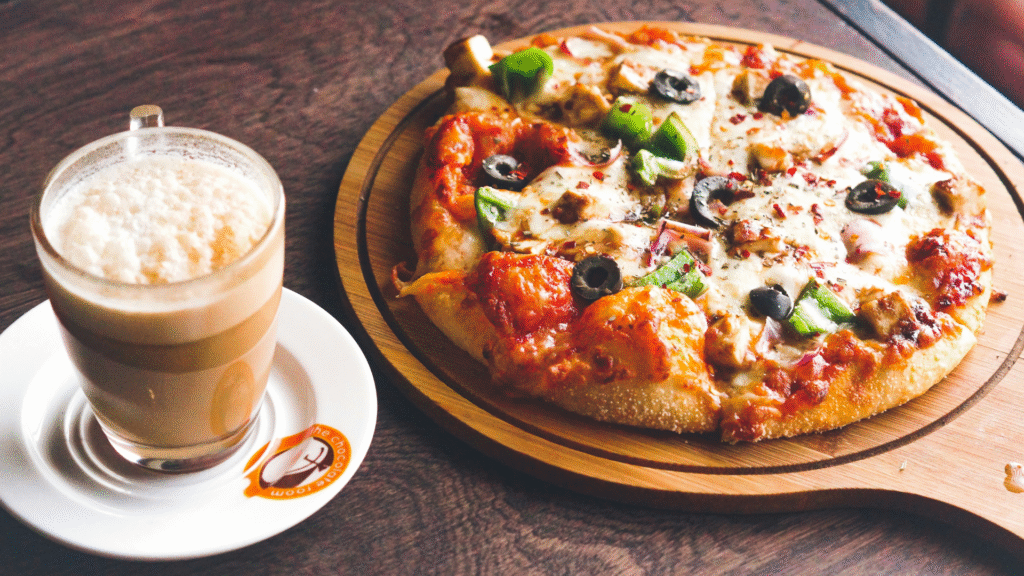
Coffee & Citrus
A lesser-known combination to avoid is coffee and citrus foods.
It’s a classic American tradition to see coffee and orange juice served side by side at breakfast, especially in chain diners like Denny’s and IHOP.
But you may be surprised to learn that these two staples shouldn’t be consumed together.
Both coffee and citrus are naturally high in acidity, and when paired, they can significantly increase acid levels in the stomach.
This heightened acidity may lead to discomfort, including acid reflux, heartburn, or even diarrhea.
So, the next time you sit down for a Grand Slam, consider sticking to just one of these acidic beverages.
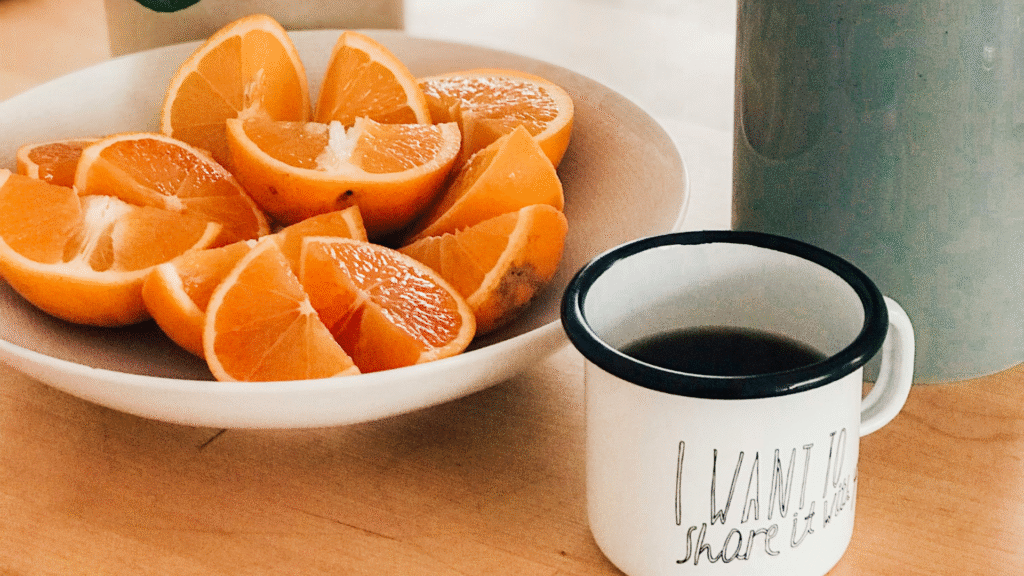
Protein & Starch
Perhaps one of the most popular dinner pairings is a seared steak with a baked potato, but combining protein and starch can lead to various digestive issues.
Animal protein, including poultry, red meat, and fish, is dense and takes several hours for the body to break down.
Similarly, starches like baked potatoes also require a longer digestion time.
When eaten together, the combination can slow down the digestive process even more, potentially leading to discomfort and problems in the gastrointestinal (GI) tract.
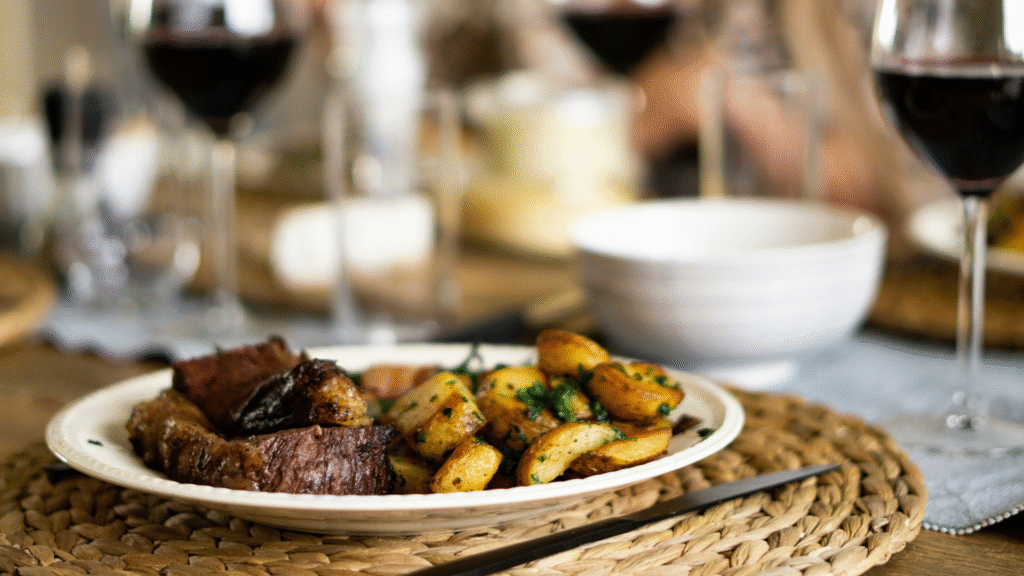
Nightshade & High-Protein Vegetables
Nightshade vegetables, including tomatoes, bell peppers, and eggplants, are packed with antioxidants and other nutrients.
However, they may cause inflammation in people sensitive to alkaloids or intolerant to nightshades.
Mixing nightshade vegetables with high-protein veggies like lentils, spinach, and beans may lead to digestive discomfort, particularly for those prone to bloating or gas.
It’s worth noting that both nightshades and high-protein vegetables can affect digestion on their own, but when eaten together, these effects may become more pronounced.
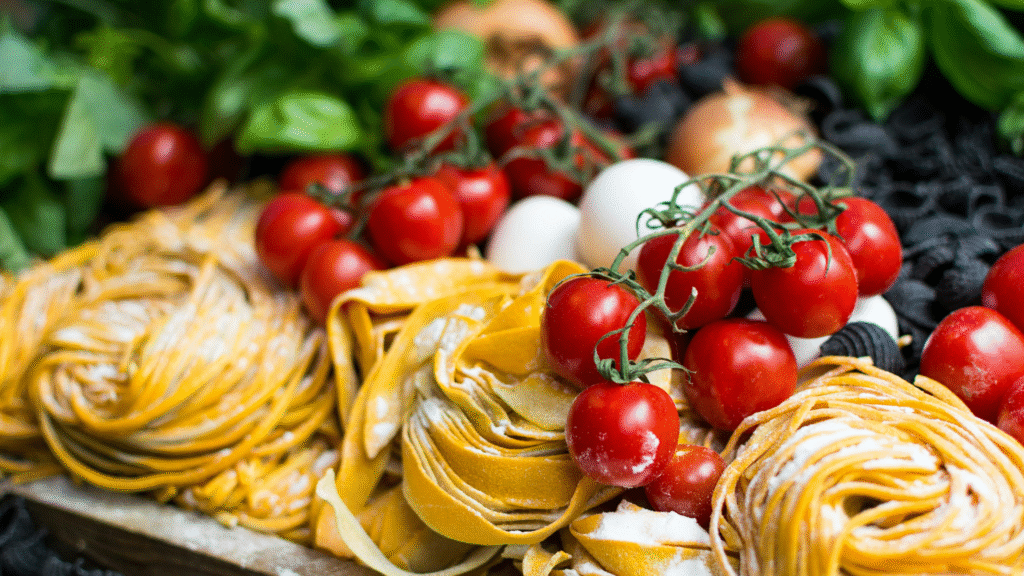
Bacon & Eggs
Bacon and eggs are a classic breakfast combo enjoyed around the world, but surprisingly, they might not be the best pairing for digestion.
Both bacon and eggs are high in protein and saturated fat, nutrients that can be part of a healthy diet but may also cause digestive issues when consumed in excess.
A typical serving of bacon contains about 12 grams of protein and 22% of your daily recommended saturated fat, while one egg has 6 grams of protein and a whopping 71% of your daily saturated fat intake.
When eaten together, especially if the eggs are fried, this high-fat load can overwhelm the digestive system.
As a result, you might experience bloating, discomfort, or even diarrhea, since the body struggles to fully process all the fat.
Excess fat in the stomach can also lead to inflammation, making this breakfast favorite a potential trigger for digestive upset.
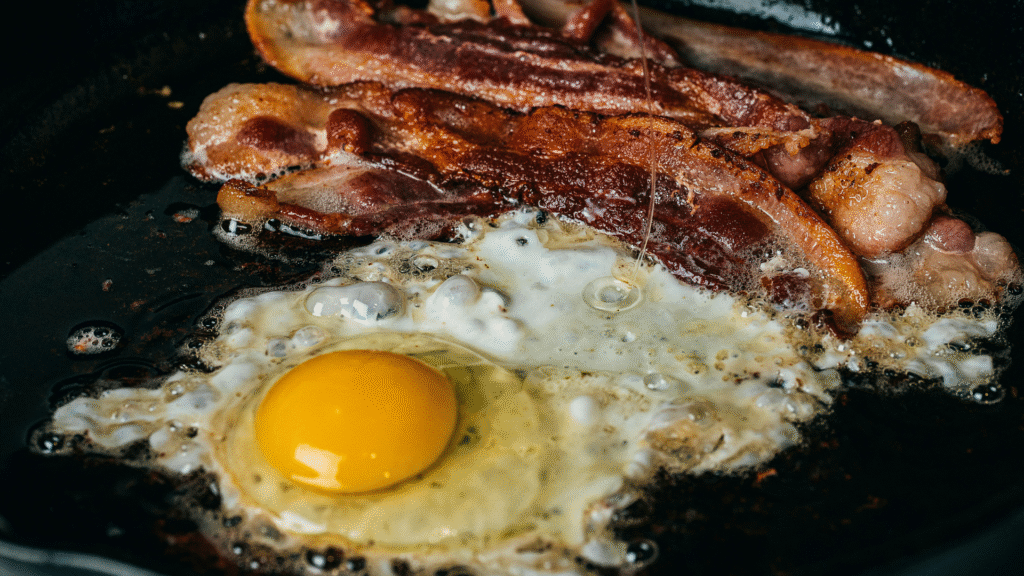
Dairy & Citrus
As mentioned earlier in the article, the acidity in citrus fruits can cause digestive issues and make them difficult to pair with other foods.
A good rule is to eat citrus fruits alone on an empty stomach to avoid acid digestion issues.
Alternatively, dairy like milk and cheese can upset the stomach due to lactose intolerance and their fat and protein content.
The body often has to work harder to digest the protein, and slows down digestion to process the fats.
A well-known troublesome combo is milk and melons, which can act like a laxative and sometimes cause vomiting and discomfort.
While not all citrus fruits cause this reaction, it’s important to consider potential lactose intolerance when combining dairy and fruit.
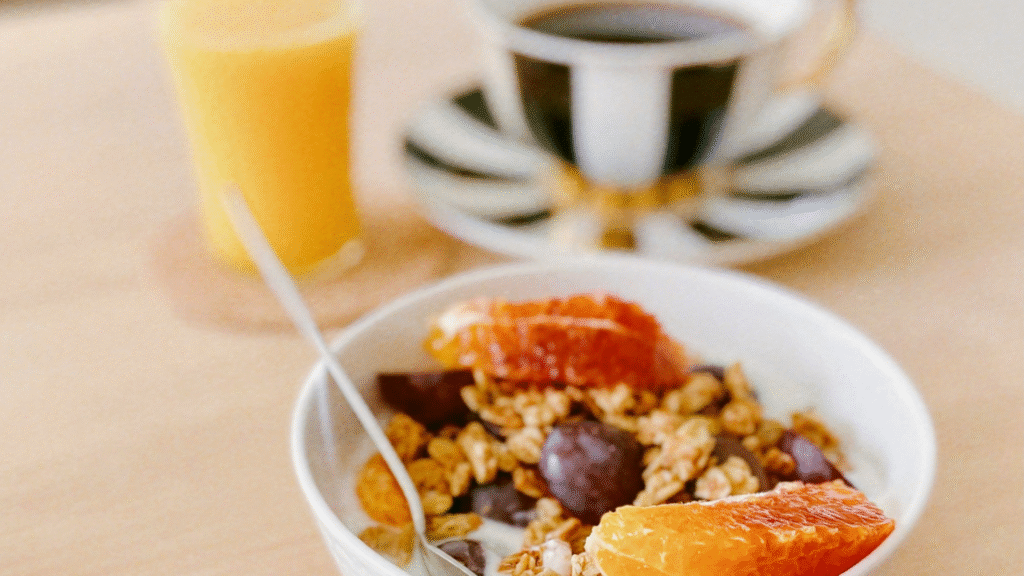
High-Fiber Vegetables & Protein
When pairing foods in meals, it’s important to consider how each item digests.
For example, high-fiber vegetables like beans take a long time to break down because of their carbohydrate content, while high-protein foods (such as meat) are processed more quickly by the stomach.
Combining high-fiber vegetables with protein can create conflicting digestive processes, slow digestion, and potentially lead to acid reflux and nausea.
Additionally, high-fiber vegetables naturally produce gas, which can be worse when eaten alongside meat.
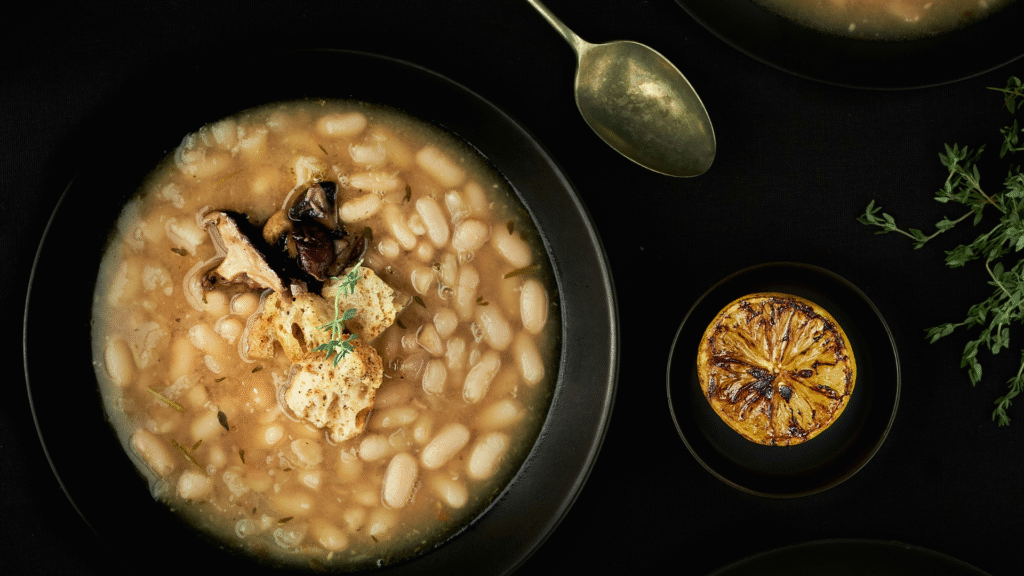
High-Fiber Foods & Dairy
High-fiber foods paired with dairy can be as simple as enjoying a bean chili loaded with cheddar cheese and sour cream.
While this pairing sounds delicious, the fiber in the beans slows digestion, causing the stomach to work harder.
When dairy stays in the stomach for longer periods, it can ferment, producing gas and leading to stomach discomfort.
If lactose intolerance is involved, these digestive issues can become even more pronounced.
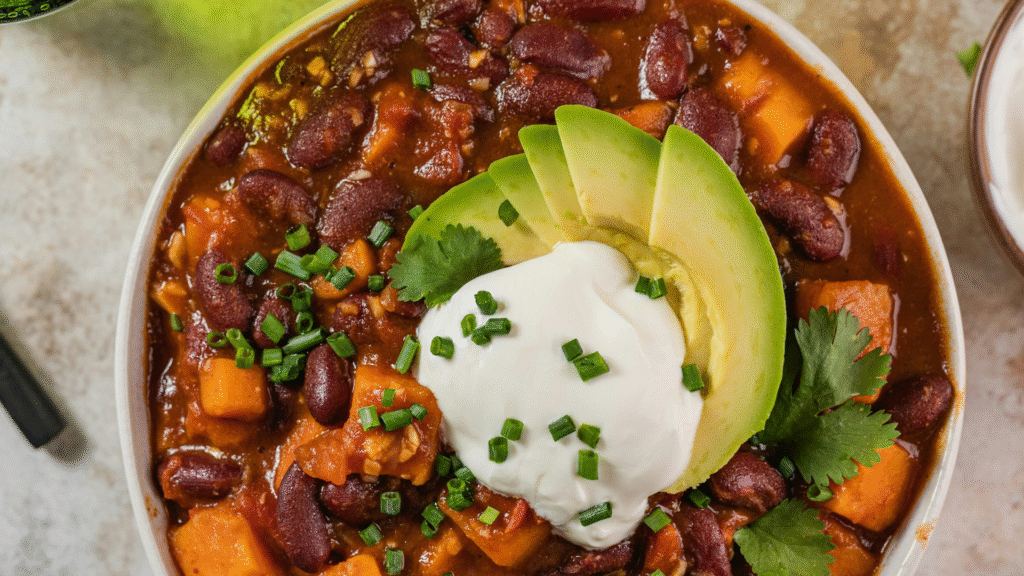
Starch/Grains & Citrus
It was mentioned earlier that dairy and citrus shouldn’t be paired together, but a similar combination to watch out for is grains and citrus.
If you’ve ever seen a breakfast commercial, you’ve likely noticed cereal served alongside a tall glass of orange juice.
Although this looks appealing, it’s not always easy on the stomach.
Digestive enzymes in the stomach—proteins that help break down complex foods—are needed to digest the starches found in many cereals.
This process can be slow. For some people, combining citrus with starch can increase stomach acidity, leading to burping, bloating, and discomfort.

Spicy Foods and Alcohol
This might be a hard truth for tailgating and Super Bowl fans who love spicy wings and jalapeño poppers.
However, pairing these spicy treats with alcohol isn’t recommended. Both spicy foods and alcohol are known stomach irritants that can cause digestive issues on their own.
For people with GI problems or gastroesophageal reflux disease (GERD), combining spicy food and alcohol can lead to an upset stomach, heartburn, and indigestion.
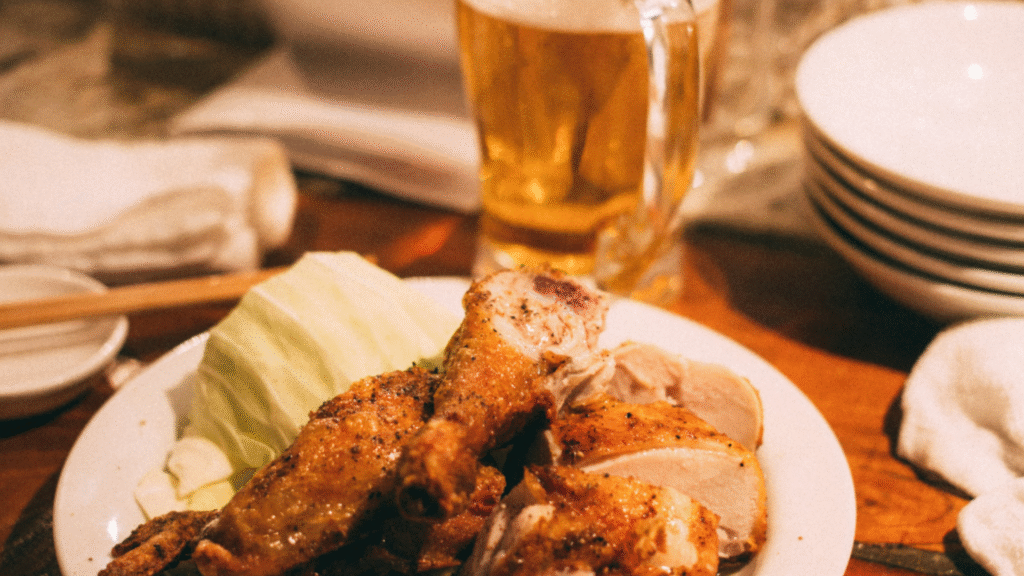
Just Say No to Bad Combos
It’s important to recognize which foods your stomach can easily handle and which might cause discomfort.
The point of this post is to help you understand your body and recognize which foods and combos to avoid.
Eating should never be painful, especially when enjoying the foods you love.
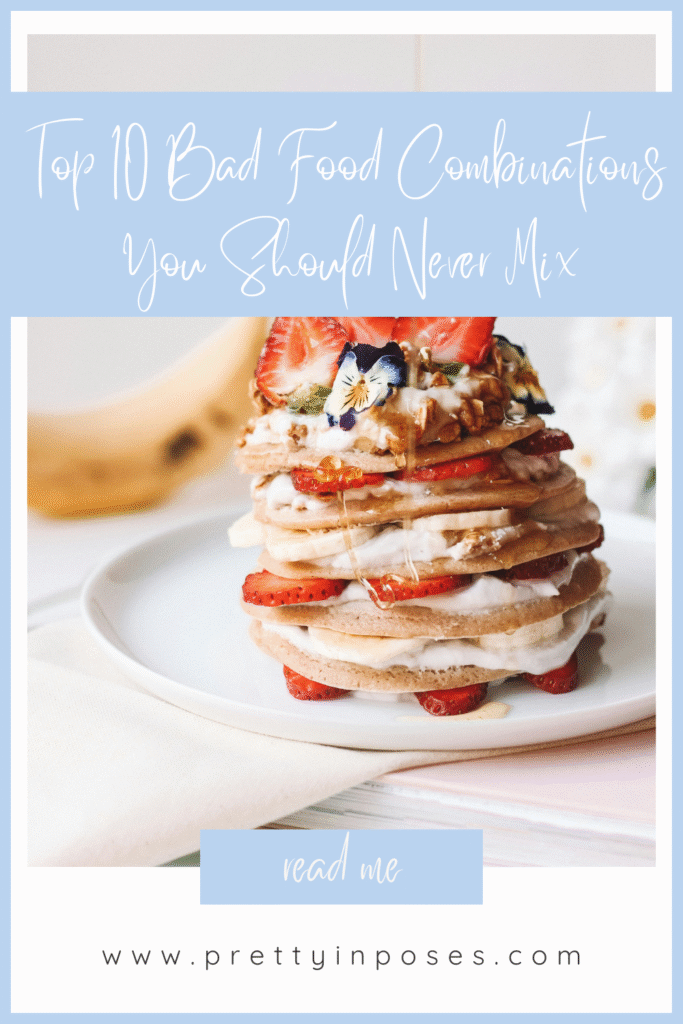
Guest Post

Brittany Strong has an associate’s degree in communications and is an engineering major at Florida Atlantic University. When she’s not in school developing apps, you can find Brittany playing with her Morkie Terrier or digging into a classic fiction novel.
Special Thanks



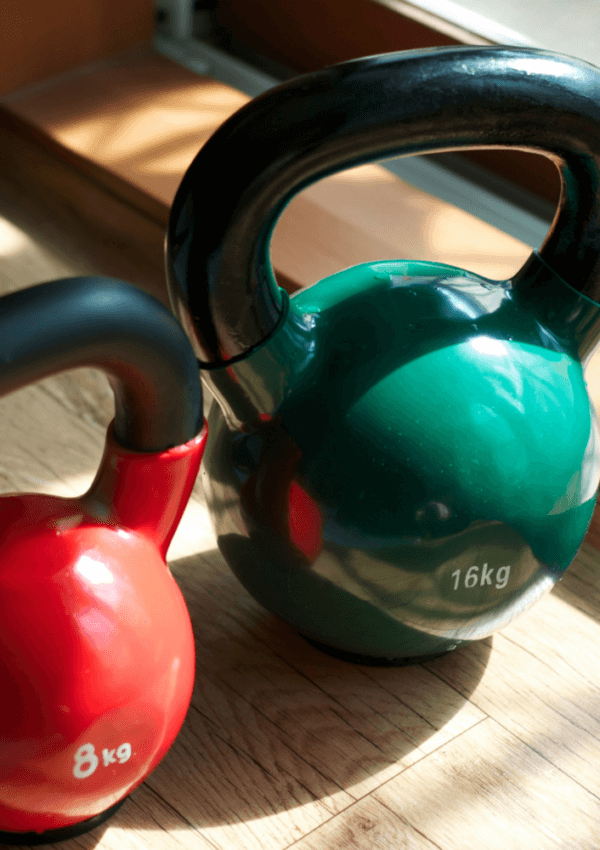


Leave a Reply